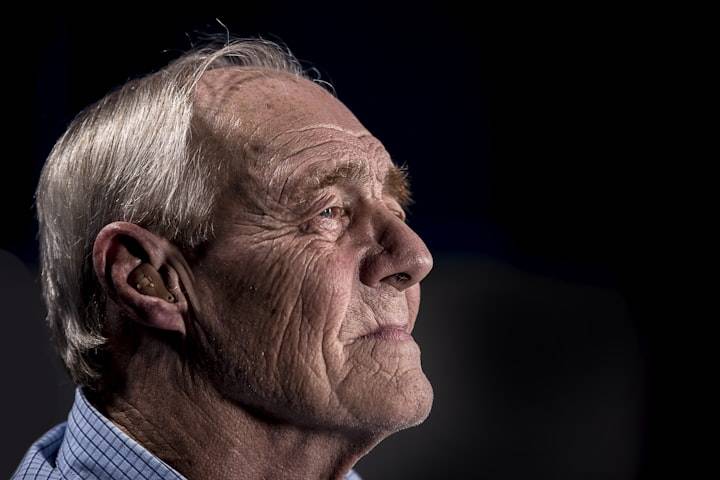Introduction
Depression is a significant mental health concern that can affect individuals at any age, but it manifests differently in older men. As men age, they may face unique challenges and stressors that contribute to the development of depressive symptoms. Understanding these factors is essential for effective diagnosis and treatment.
Prevalence of Depression in Older Men
Depression in older adults, particularly in men, is often underreported and underdiagnosed. Estimates suggest that around 1-5% of older men experience depression, although the numbers may be higher when considering those with milder symptoms. Many factors contribute to the prevalence of depression in this demographic, including:
Health Problems: Chronic illnesses, such as heart disease, diabetes, or arthritis, can lead to feelings of hopelessness and despair.
Loss and Grief: The loss of a spouse, family members, or friends can trigger depressive episodes, especially if the individual feels isolated.
Social Changes: Retirement and decreased social interactions can lead to feelings of purposelessness and loneliness.
Symptoms of Depression in Older Men
Symptoms of depression in older men may differ from those typically seen in younger individuals. Common signs include:
Fatigue: Persistent tiredness that affects daily activities.
Irritability: Increased agitation or frustration, which may be mistaken for other issues.
Changes in Sleep Patterns: Insomnia or oversleeping can occur as a result of depressive feelings.
Loss of Interest: A decreased interest in activities that were once enjoyable, including hobbies and social interactions.
Physical Symptoms: Aches and pains without a clear physical cause can be a manifestation of depression.
Cognitive Changes: Difficulties in concentration, memory problems, or indecisiveness.
Causes of Depression in Older Men
Several factors contribute to the onset of depression in older men:
Biological Factors: Changes in brain chemistry and hormone levels can influence mood. Age-related changes in neurotransmitters, such as serotonin and dopamine, may play a significant role.
Psychosocial Factors: Life transitions, such as retirement, loss of a partner, or diminished social roles, can lead to feelings of inadequacy or low self-worth.
Chronic Health Conditions: Coexisting health issues can exacerbate feelings of depression, leading to a cycle of worsening health and mood.
Medication Side Effects: Some medications for chronic conditions can have side effects that contribute to depressive symptoms.
Diagnosis of Depression in Older Men
Diagnosing depression in older men requires a comprehensive assessment, which may include:
Clinical Interviews: Discussing symptoms, medical history, and any current medications.
Standardized Assessment Tools: Utilizing questionnaires to assess the severity of depression, such as the Geriatric Depression Scale (GDS).
Physical Examination: To rule out medical causes for depressive symptoms.
Treatment Options for Depression in Older Men
Effective treatment for depression in older men typically involves a combination of approaches:
1. Psychotherapy
Cognitive Behavioural Therapy (CBT): Focuses on identifying and changing negative thought patterns and behaviours.
Interpersonal Therapy (IPT): Addresses interpersonal issues and helps improve social relationships.
Group Therapy: Provides support and understanding from peers who may be experiencing similar challenges.
2. Medications
Antidepressants: Selective serotonin reuptake inhibitors (SSRIs) are commonly prescribed and generally well-tolerated among older adults. However, careful monitoring for side effects is essential.
Adjustments to Current Medications: Reviewing and adjusting other medications to minimize depressive side effects may be necessary.
3. Lifestyle Modifications
Physical Activity: Regular exercise has been shown to improve mood and overall well-being.
Healthy Diet: A balanced diet rich in fruits, vegetables, and omega-3 fatty acids can positively impact mental health.
Social Engagement: Encouraging participation in social activities can help combat feelings of isolation and loneliness.
Sleep Hygiene: Establishing a regular sleep routine can help improve sleep quality, which is often disrupted in individuals with depression.
Coping Strategies for Older Men with Depression
In addition to professional treatment, older men can adopt coping strategies to manage their symptoms:
Stay Connected: Maintaining relationships with family and friends can provide emotional support.
Engage in Hobbies: Pursuing interests and activities can foster a sense of purpose and enjoyment.
Mindfulness and Relaxation Techniques: Practices such as meditation, deep breathing, and yoga can help reduce stress and improve mood.
Limit Alcohol Consumption: Alcohol can exacerbate depressive symptoms, so moderation is essential.
Seek Help Early: Recognizing symptoms and seeking help promptly can lead to better outcomes and recovery.
Depression in older men is a complex issue influenced by various biological, psychological, and social factors. By understanding these aspects, caregivers and healthcare providers can better diagnose and treat this condition. With the right support and intervention, older men can lead fulfilling lives despite their challenges with depression. If you or someone you know is experiencing symptoms of depression, seeking professional help is crucial for effective management and recovery.


